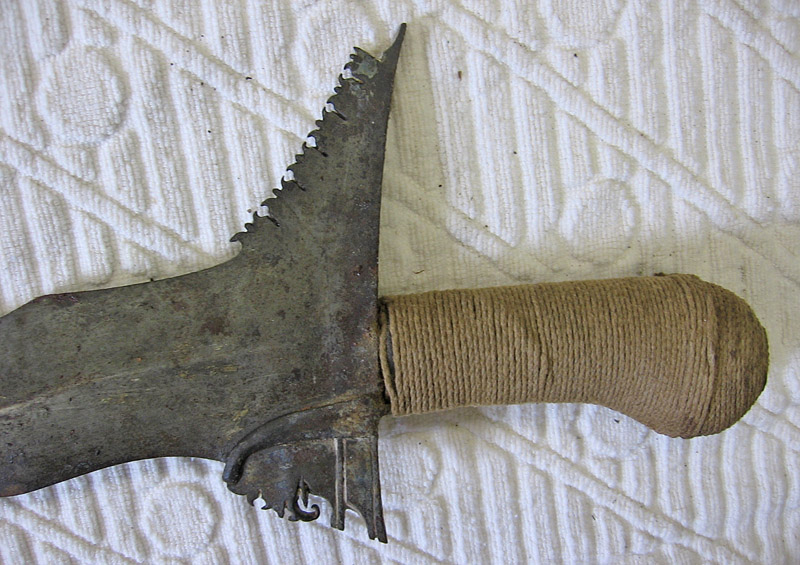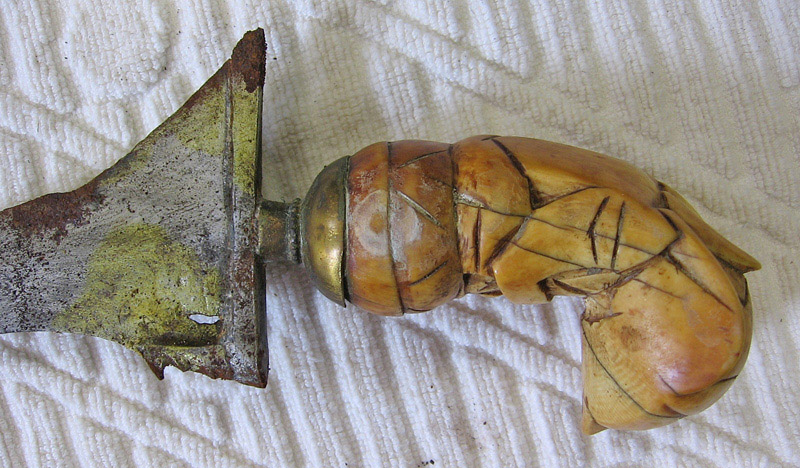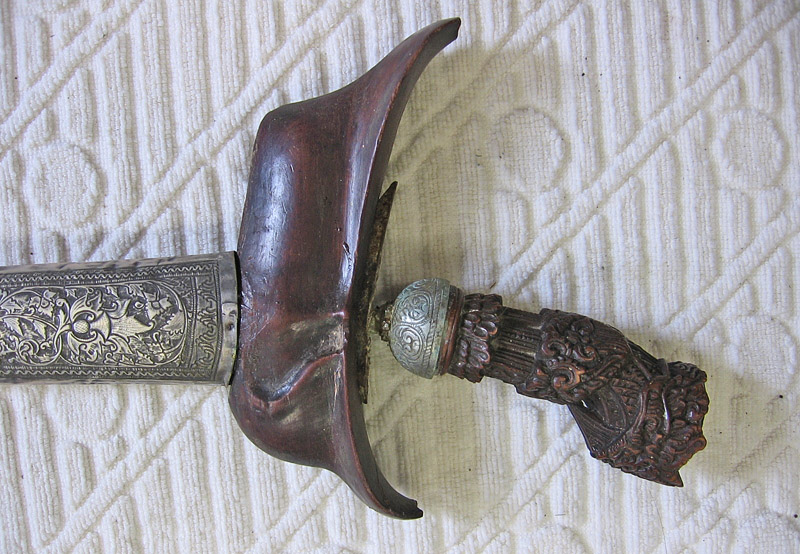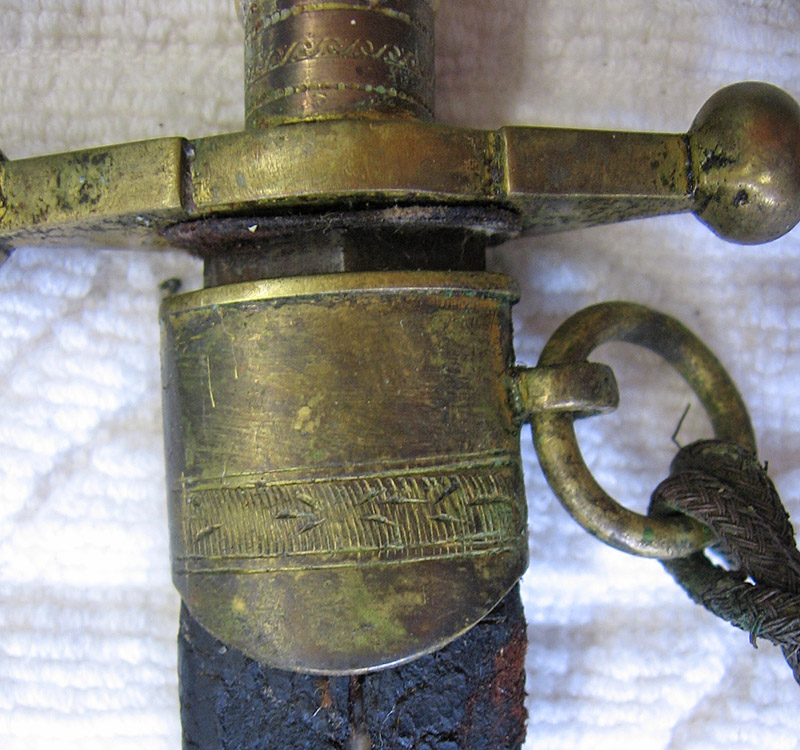Our family has owned an antique weapons collection for several generations, most of which was collected by our great-grandfather in the early 1900's. I'm hoping that somebody here will be able to help us identify some of these bladed weapons. They've been in storage for many years and unfortunately they haven't been maintained during all that time, so please excuse their poor condition. We're planning to do something about that, but first we'd like to have an idea of what we're starting with.
I've already posted five Japanese swords and knives on the Nihonto Message Board (http://www.militaria.co.za/nmb/viewtopic.php?f=1&t=5997), and it was suggested that I post the six non-Japanese items here.
I'm eager to learn more about this collection. I've been reading about the construction and history of the Japanese swords, but I have to admit that I know very little about the items that I'm posting on this site. Some of them appear to be European and some of the others are anybody's guess, including several odd-looking wavy-bladed swords and daggers. Several of the items look like total junk to me, although I wouldn't mind getting a confirmation of that from some of the forum members.
Any help will be greatly appreciated.
Thank you!
Dana P
(The items are numbered from "P6" through "P11" and are attached to this post and the following post.)
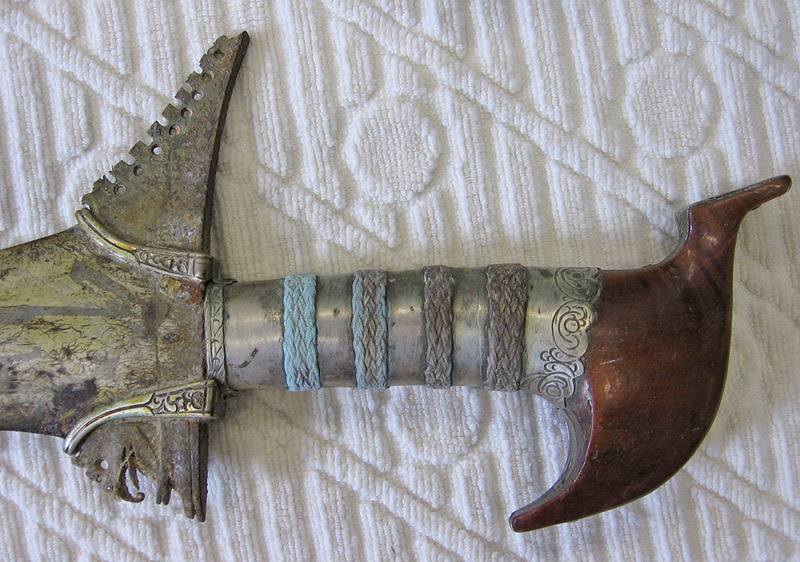
P8
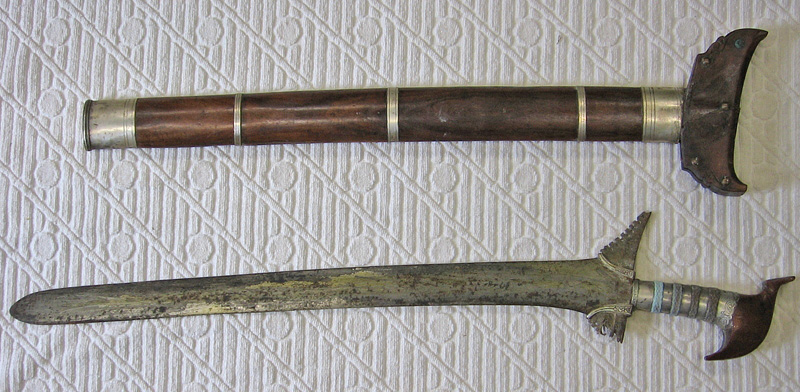
P8
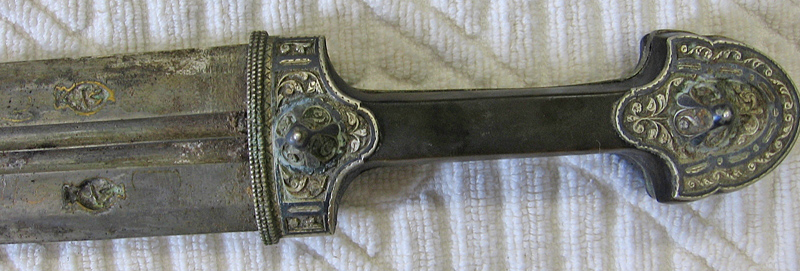
P7
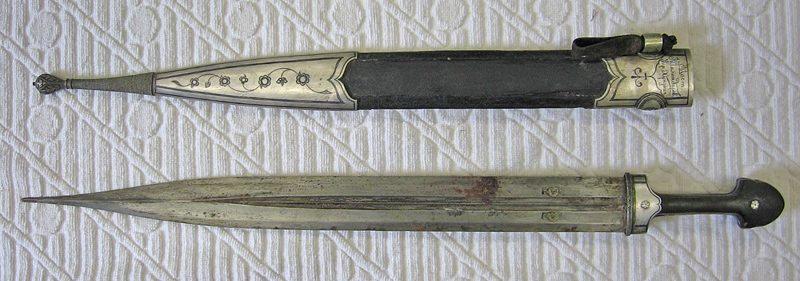
P7

P6

P6

